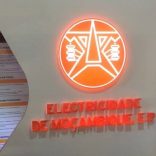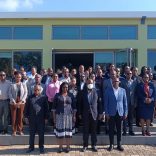African Energy Week: Major LNG projects in Mozambique, Nigeria edge closer to FID amid tight global ...
No check made by the State on quantities of coal production and exports

File: O País
In its analysis of the General State Account of 2017, the Administrative Tribunal of Mozambique took a look at the extractive industry, where it noted a broad lack of certification of the financial costs reported by multinationals.
For example, Sasol reported in December 2017 a balance of recoverable costs of US$584,721,259. However, this value has not been certified by the state, as with the recoverable costs declared by Anadarko and Eni, two oil majors operating in the Rovuma basin.
In its opinion, the Administrative Tribunal recommends measures “to certify recoverable costs, which will allow better projection and planning of future State revenues in the extractive industry”.
In Tete, the Administrative Tribunal found that state institutions, namely the National Institute of Mines, the Provincial Directorate of Mineral Resources and Energy and the Customs, did not verify the quantities of coal extracted.
“There is a lack of interaction between the State institutions involved in the process of measuring exported coal, namely the National Institute of Mines, the Provincial Directorate of Mineral Resources and Energy and the Tax Authority (Directorate of the Tax Area of Tete – Unit of Large Taxpayers of Tete and Nacala-Porto Customs), resulting in divergences between the quantities of exported coal declared in the monthly production reports and the information presented by Nacala-Porto Customs,” the body complains.
The Administrative Tribunal also criticises the Tax Authority, the National Institute of Mines and the Provincial Directorate of Mineral Resources and Energy of Tete for not being capable of evaluating the logistical costs of transportation of coal and its storage in Nacala, as presented in the monthly reports of production and marketing of coal. These logistic costs are deducted from the sales volume to determine the tax base of the Coal Production Tax. And, because they do not do their job, state institutions simply accept the information presented by the mining companies.
The Administrative Tribunal recommends that the monitoring, evaluation and inspection of mining activity be carried out periodically, with better articulation of the state institutions so as to enable the control mechanisms of the production and commercialisation of coal, and the launching of an Extractive Industry High Authority.
The report and opinion of the General State Account for 2017 will be discussed at the plenary session of the Assembly of the Republic on Wednesday and Thursday (May 9 and 10).
By Emídio Beúla













Leave a Reply
Be the First to Comment!
You must be logged in to post a comment.
You must be logged in to post a comment.